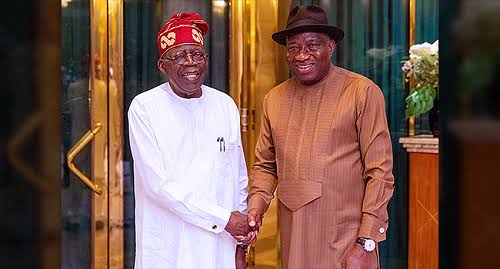2024 in review | Five most captivating geopolitical stories
By: Daramola Luke and Saheed Muheez
2024 has been interesting with loads of events keeping the international political system involved and evolving with every twist and turn in each story. As the year trickles down to the last few days, here are some of the most captivating stories from the global stage.
1. BRICS expands membership to nine

BRICS, the international organisation founded by Brazil, Russia, India, China, and South Africa expanded its membership to 9 in 2024. The intergovernmental organisation, positioned as a counterbalance to the G7 bloc, has steadily evolved into a formidable geopolitical and economic alliance. Iran, Egypt, Ethiopia, and the United Arab Emirates officially joined on January 1, 2024, marking their debut at the BRICS summit held from October 22 to 24 in Kazan, Russia. Other countries who have applied for membership are Saudi Arabia, Bangladesh, Azerbaijan, Myanmar, Pakistan, Senegal, Sri Lanka, Venezuela, and Syria although it’s unclear if the new Syrian government will continue with the application started by Bashar al-Assad. Other countries partnering with the bloc are Belarus, Bolivia, Cuba, Malaysia, Thailand, Turkey, Vietnam, and Africa’s Nigeria.
2. 44-year-old Bassirou Faye becomes Senegal’s President

In an intriguing year in Senegal, Bassirou Faye became the West African nation’s president just nine days after he was released from prison. The incumbent President Macky Sall was ineligible for elections due to constitutional limits. He announced the postponement of the presidential election scheduled for February 25 but the decree was overturned by the Senegalese constitutional council after violent protests against it. Consequently, a rescheduled election took place on March 24 and was won by Faye who ran for the PASTEF party in place of Ousmane Sonko after the duo were released from Prison. Faye appointed Ousmane as prime minister, sealing a great year for Senegal’s democracy.
3. Israel’s high-profile assassinations

2024 was dominated by the continued escalations in Ukraine and the Gaza Strip. The Israeli Defence Forces (IDF) egged on by the hard-line National Security first approach of Benjamin Netanyahu not only continued military incursions in Gaza but also fought against oppositionist groups like the IRGC (Iran), Hezbollah (Lebanon) and the Houthi rebels of Yemen across different war fronts in 2024. The Israeli forces and Mossad, Israel’s top intelligence service were credited with over twenty assassinations of leaders of these groups of which Ismail Haniyeh, Hassan Nasrallah, and Yahya Sinwar stand out.
Ismail Haniyeh, former political leader of Hamas was killed with a bomb at his house in Tehran. He was targeted for being in charge of Hamas when the group attacked Israel on the 7th of October 2023 leading to the current incursions into Gaza. He was leading ceasefire negotiations at the time of his death.
Hezbollah’s Hassan Nasrallah was assassinated with an airstrike on the 27th of September 2024 in Dahieh, Lebanon. He was the Secretary General of the Iranian-backed militia, which positioned itself in solidarity with Hamas.
Yahya Sinwar, the leader of Hamas since 2017, was widely regarded as the architect of the Hamas-led attack on Israel. Known for his unwavering commitment to the eradication of Israel, Sinwar had been designated a terrorist by the United States, the European Union, and several other nations. He was killed in a firefight with Israeli forces on October 16, 2024.
Other assassinated individuals were Hashem Saffieddine of Hezbollah’s Executive Council and his deputy, Nabil Qaouk, Mohammed Deif of Hamas military brigade, and Mohammed Reza Zahedi, Commander of Quds force in Lebanon and Syria.
4. Trump’s resounding political comeback

In one of the most anticipated events of 2024, the US Presidential election, Donald Trump secured re-election to the Oval Office, becoming the first president since 1892 to win non-consecutive terms. The Republican’s campaign faced significant hurdles, including legal challenges and high-profile court battles. His victory, etched into the annals of history, came despite surviving two assassination attempts in the months leading up to the election. His 2020 departure from the White House happened under acrimonious circumstances for making gross, misleading statements about the 2020 elections which he had lost bitterly. He had also caused an insurrection of staunch supporters to force their way into the US Capitol as a last-ditch attempt to overturn his defeat.
The 2024 elections saw Trump initially face off against the incumbent president, Joe Biden who defeated him four years back. The duo went head-to-head in presidential debates that exposed the frailty of the advanced age of Biden which caused worries about the president’s ability to lead America for another 4-year term. The widespread reactions prompted Biden to step down and endorse his running mate, Kamala Harris as the new party candidate.
The goal of Trump’s campaign had been to max out the men and hold the women which meant the Republican targeted issues such as the state of the economy and immigration policies and the accompanying dissatisfaction of voters on these issues. In the end, Donald Trump triumphed in the November 5 election with a comfortable victory over Harris while making a clean sweep of the popular vote, the electoral college, and the swing states to complete the story of one of the greatest political comebacks in America’s 250 years of history.
5. End of the road for President Bashar al-Assad

December 8 saw the chains fall off the Syrian Arab Republic as the long-ruling Assad regime was brought to its knees after more than 50 years since Hafez Al-Assad, Bashar’s father took power through a coup d’etat. In a surprising move, the rebel forces that have been operating against the pro-government forces since the beginning of the Syrian Civil War in 2011, began a fast-paced multi-group offensive on the government-controlled areas around the Capital, Damascus. The offensive gained ground swiftly and surrounded Damascus from different directions while successfully infiltrating and neutralising the defences allowing them to enter the capital with little to nonexistent opposition.
Bashar al-Assad had enjoyed initial support due to his family’s revered leadership based on personality cults which drew inspiration from North Korea’s Kim Family. However, things fell apart following the Arab Spring which took the Middle East region like wildfire. This culminated in the Syrian Civil War which has seen the perpetration of numerous war crimes against hundreds of thousands of civilians, allegations which the president denied.
The December offensive brought an end to Assad’s 24-year rule and has renewed hopes in Syria as a transitional government navigates the return of democracy after a decade of war and destruction.







